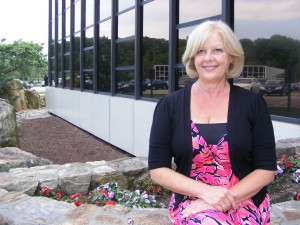SUNY for seniors?

The way SUNY Purchase President Thomas Schwarz sees it, 35 acres on campus would fare far better as a retirement community than an empty plot of land.
Hopeful? Yes. But Schwarz, a former litigator who has presided as president of the liberal arts college since 2002, is clear about one thing: This time around, he is not counting his academic chickens before they hatch and he is continuing with other projects independent of the parcel”™s fate.
Among past plans that failed to materialize for the parcel was as a home for the New York Metropolitan Opera Orchestra.
Rewind to three years ago when a legislative bill that would have allowed the school to lease unused land to a developer of senior housing was vetoed by then-Gov. David A. Paterson. Paterson”™s plea at the time was for a more comprehensive, and less piecemeal, school development plan.
“The notion that a president would say, ”˜Please take 40 acres of my land and solve the problems of the Eerie Canal with it,”™ it”™s not going to happen,” Schwarz said.  “If you think about it, no president would ever commit to this kind of initiative if the campus wouldn”™t benefit from it.”
The most recent bill to make use of the parcel mandates 75 percent of any revenues generated by the senior housing development be allocated for student tuition aid. About 25 percent of leasehold money would go toward hiring additional faculty members, Schwarz said.
The land could hold a maximum of 385 units. Development costs that have floated in the neighborhood of $100 million to $300 million.
About 20 percent of the units would be designated as affordable-housing; about half would be reserved for Westchester County residents.
“Westchester has an aging population,” Schwarz said. “To be able to be in a community on a college campus with the Performing Arts Center and a museum is very desirable.”
Assemblywoman Amy Paulin, D-Scarsdale, who sponsored the bill in the Assembly, called the legislation a “win-win for our students who will receive scholarship support, our faculty and the community, which badly needs and awaits the senior learning community.”
Sen. Suzi Oppenheimer, D-Mamaroneck, sponsored the bill in the Senate, with strong support from Sen. Kenneth LaValle, R-Port Jefferson, chairman of the state Senate”™s Committee on Higher Education, Schwarz said.
“This, of course, doesn”™t flow through the budget process,” he noted. “It”™s legislation that will bring in proceeds, but it doesn”™t then go into the big pot to get whacked up in accordance with the budget process.”
The school will put out a request for proposals pending bill signage and the statute would allow it to lease the land from the state to the Purchase College Advancement Corp., which would then enter into the leasehold with the selected developer, Schwarz said.
In past conversations with potential developers, Schwarz has heard leasehold payments stemming from the development could total “$2.5 million to $3 million a year if not more.”
“I”™m optimistic that that will help us,” he said. “It certainly will not make up for the 35 percent in cuts (to SUNY”™s operating budget) that we”™ve had over the last few years, but at least the bleeding will stop and we”™ll be able to begin to rebuild.”
SUNY Purchase is well under way in a five-year master facilities plan footed by the State University Construction Fund.
Schwarz said about 70 percent of the work on the central plaza deck and drainage system has been completed; construction costs were about $20.2 million.
“We”™re gutting the humanities building,” he said. “That will be taken offline next year. We”™re upgrading all of the HVAC systems throughout the college and the next building that will be thoroughly done on the inside will be the art and design building after the humanities building is done.”